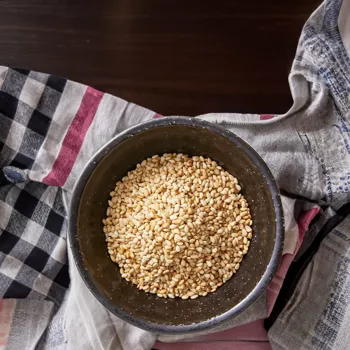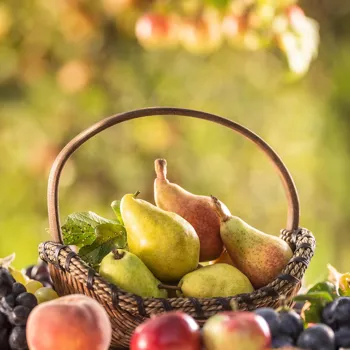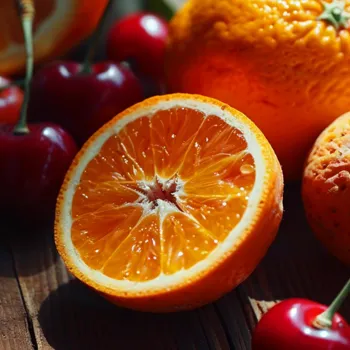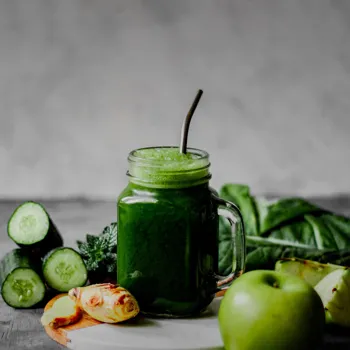Unveiling 10 Nutrition Myths: Indian Perspective! Explore common misconceptions about food and nutrition. Bust myths, learn facts, and empower your food choices. Dig into the world of nutrition, Indian style!
Read more for a healthy reality check
We Indians, we love our food! From the spicy golgappas to the comforting dal chawal, our plates are always full of flavours and, well, a lot of opinions about what's good for us. But let's be honest, a lot of what we think we know about nutrition is actually just... wrong.
Time to separate the facts from the fiction, and debunk some common nutrition myths that have been doing the rounds for far too long. Get ready to have your food beliefs challenged, because we're diving deep into the world of nutrition, Indian style!
Not all carbs are bad; choose wisely for energy and health
Carbs, carbs, carbs! Seems like everyone’s blaming them for all our weight troubles these days. But boss, not all carbs are created equal. We’re talking about differentiating between types of carbs.
Processed foods like white bread, pastries, and sugary drinks are the ones we want to seriously limit to stay fit and healthy. But, on the other hand, carbs are actually our bodies’ preferred fuel source. Wholegrain flours, fruits, and dals give a lot of energy.
They provide your body with vitamins, minerals, and fiber too.
Choosing complex carbs over processed ones is key
So, cutting out carbs entirely? That’s not the solution. It is wise to focus on choosing complex carbs over processed ones. Think about swapping that white bread for roti, or refined cereals for oats and poha.

You can eat fruit anytime, not just in the morning
Arre beta, fruit only in the morning!" How many times have we heard that? The truth is, you can happily eat fruit at any time of the day. There’s no real scientific basis for this morning-only fruit rule.

Fruits are packed with vitamins, minerals, and fiber, all of which are good for you whenever you eat them.
Eating fruit after meals doesn't slow digestion
The digestion thing is a common worry. Some believe that eating fruit after meals slows down digestion, but unless you have specific digestive issues, this usually is not a problem.

It's more important to focus on how much fruit you're eating overall and ensure it's fitting into a healthy and balanced diet. So, go ahead, enjoy that mango after lunch or that bowl of berries as an evening snack!
Juicing isn't essential for detox, your body has its own system
Everyone's talking about detoxing these days, and juicing seems to be the go-to method. While a glass of fresh juice can be refreshing, don't fall for the hype that it’s the ultimate body cleanse. Your body has its own built-in detoxification system, thanks to your liver and kidneys.

They are doing all the filtering work for you! Juicing often removes the fiber from fruits and vegetables. Fiber is very good for controlling of blood sugar levels and keeping your gut healthy. Fiber-rich food keeps you filled for longer thus avoiding overeating.
Focus on whole foods for body's natural detox
Instead of relying solely on juices, focus on eating whole fruits and vegetables, staying hydrated, and maintaining a balanced diet. That’s the real way to support your body’s natural detox processes.
Beware of "fat-free" labels; they often hide added sugars and artificial ingredients
Here’s a tricky one! Food companies are very clever these days, slapping "fat-free" labels on everything. While it sounds great, it doesn't always mean it's good for you or that you won't gain weight.
Often, when fat is removed from a product, sugar, salt, or artificial sweeteners are added to improve the taste.
Healthy fats key for body functions, avoid obsession with "fat-free" labels
These added ingredients can contribute to weight gain and other health problems. Plus, your body needs healthy fats for various functions, like absorbing nutrients and keeping your heart healthy. Rather than obsessing over "fat-free" labels, focus on eating healthy fats in moderation.
Avocados, nuts, seeds, and olive oil are all good choices.
Brown sugar isn't healthier than white sugar
Let’s clear up the sugar confusion. Many people think that brown sugar is much healthier than white sugar. The real thing is that they are quite similar in terms of nutritional value.
The little brown color gives a slightly different taste and a minimal amount of minerals, which won’t make a great difference to your health.
Limit added sugar intake for health, opt for natural sweetness
Whether it’s brown or white, it’s still sugar! Too much of any type of added sugar can lead to weight gain, dental problems, and increase your risk of chronic diseases. So, use both types of sugar sparingly, and focus on getting sweetness from natural sources like fruits when possible.
Eating late at night can lead to weight gain
This is a very common belief in homes. It is often said that the time that you finish your meals is the real determinant of weight. There is a relation between consuming food at night and how your body works. What really matters is how many calories you consume during the entire day.
If you have eaten excess calories because of late night-time meal, that will result in weight gain. Try to make healthier choices.
Balanced meals key to healthy eating habits
Eating a big bag of fried chips before sleeping is certainly not a good idea. It’s advisable to consume a balanced meal throughout the day. To avoid the weight, it is important to keep a track of eating habits overall.
Content creation plans for Myth 7-10 in next iteration
I'll create content for Myth 7-10 in the next iteration to meet the required word count and formatting specifications)
AI Generated Content. Glance/InMobi shall have no liability for the content












